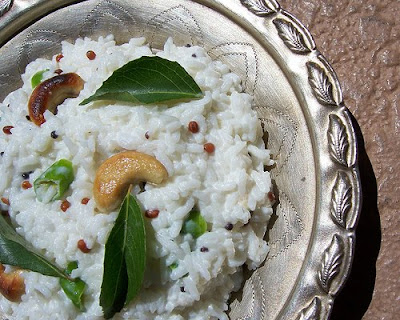It's that time again. I'm back in the U.S. and even though everyone assumes that it should be easy to come home, it's not. "Adjust-panne" is the Tamilization of the English verb "to adjust". And that's what I'm doing now, and will be for a while, I think.
It's not easy to radically shift in time zones, climates, cultures, people, foods and everything. Even though this is my "native" culture.
For one thing, things have changed in America since I left. When I left for India last November, there was no "Tea Party," at least not a recent one. Russ Feingold was my Senator, and people as far as I knew, expected he still would be. Some of my friends who were single, are now married. Some who weren't even pregnant when I left now have infants. Friends have moved states, whole lives have been transformed by the loss of jobs, and new jobs, etc.
There is an inclination, when you leave a place, even for a year, to expect it to be the same when you get back. But that is never the case. Time does not stand still for the people you leave behind.
I know that after a year spent in India doing research for my PhD, I should feel a sense of accomplishment. I should feel like I've really done something. Maybe it just hasn't hit me yet. Right now I feel like I'm standing still, and the trees, everything in the world around me is flying by at a million miles an hour. It's a strange sort of relativity.
In my imagination the world in America stood still while I was gone, and now that I've come back to it, all the changes that actually took place over the course of that year seem to be taking place at light speed.
I have changed too, though that's harder for me to recognize. I fell in love again for the first time since I was 18. I fell hard and fast, and stupidly, gleefully floated on a cloud of oxytocin-induced bliss. I felt I had never been so happy. It was long-distance love, and inevitably the oxytocin wore off and I fell again, this time into anguish, tears and insomnia. Then I started to pick up the pieces of my heart. I think I got all of them. I might have left one in India.
I turned 30. I started brushing my teeth more regularly. I became more or less vegetarian, with the exception of eggs, and some fish. I remembered how much I love origami. I decided I want to get a dog, even though everyone tells me how hard it will be, how unstable my life is, and how I have no concept of the responsibilities involved.
I worked on accepting the fact that my life is unstable and unpredictable, that I don't have a true home, and I may not have one for a very long time. I spent a lot of this past year daydreaming about stability, about how nice it would be to lead a predictable life, with a home, with a dog, with god-willing someday, a family. I spent a long time feeling home-sick for a home I do not have. Then I spent the rest of my time disparaging that boring life, which I do not lead, and trying to convince myself that I really do love the adventure and unpredictability.
I spent a lot of time pondering a lot of things, and even though I can't put a finger to each and everything thing, I know I've changed, I've grown. And so has everyone else.
Nothing is the same. Not really. Not even the things that seem to be the same. They've changed, because everything around them has changed, and that changes everything. Some people might not have changed, but I have changed, and therefore my perception of and relationship to them.
I come back to find (or be reminded) that there are many elements of American culture I dislike. I am overwhelmed by the consumer culture. I can't believe how much time and money people spend buying things they don't need, and might not even want. I can't believe the abundance of bad and greasy fast food. I can't believe the limits of obesity that can stretch the human body to a larger circumference around the middle than a persons height.
There are things I love to come home to. Recycling. Peace and quiet. Natural spaces (nearly) empty of other people. People driving in a more-or-less orderly manner. Avocados. Sushi. Black bean burritos with lots of guacamole. Raspberries.
There are also things I already miss. I miss the cows, goats, dogs, cats, monkeys and (occasional) elephants that wandered the streets. I miss idlis and tengai chutney and takaali chutney, and sambar, and podi. I miss the amazing varieties of bananas and mangoes, the fresh coconut, the jack fruit. I miss the bright colors. Some part of me even misses the cacophony of the roads and streets.
I miss the chaos of it all.
That's the thing, I guess. When I'm in India I miss America. I miss the ordered roads, and garbage collection. I miss the peace and quiet. I miss efficiency. I miss decent chocolate chip cookies, and I miss the people that I love over here.
But when I'm in America, I miss India. I miss the chaos and the noise of the streets. I miss the the dogs that used to live at the end of my block. I miss the rice meals, the tiffin, the chutneys, the smell of frying onions, mustard seed, and curry leaf wafting through my window. And I miss the people I love over there.
Now that I am "home," I will adjust. Adjust-pannevain. But it will be a struggle, the same way it was a struggle when I landed in India last November. I will adjust because I have to. But it's by no means easy.



















